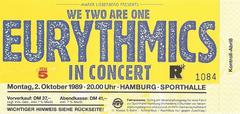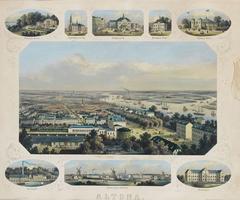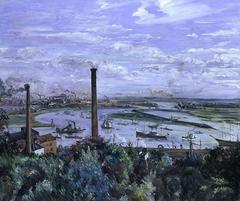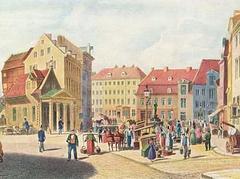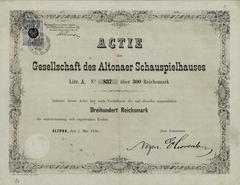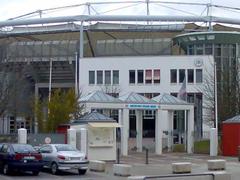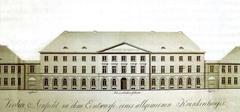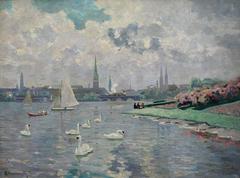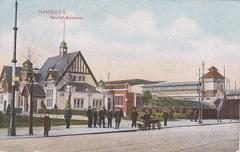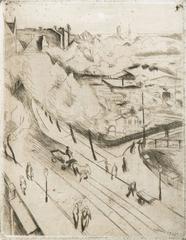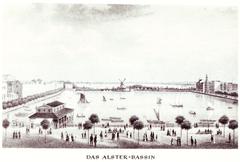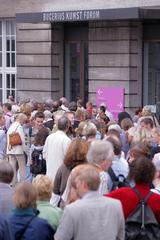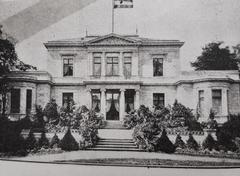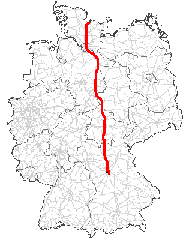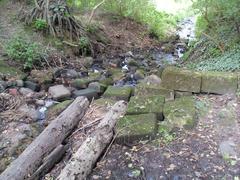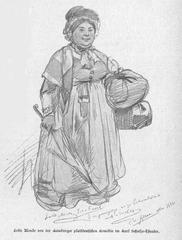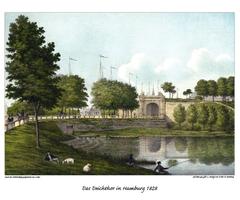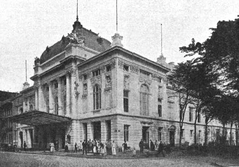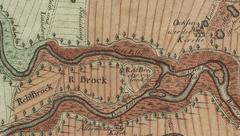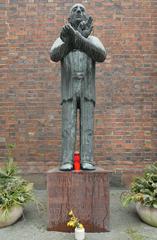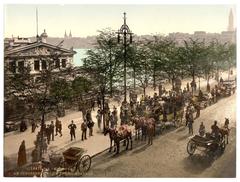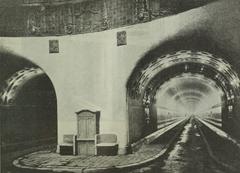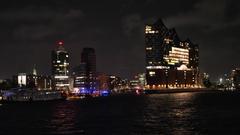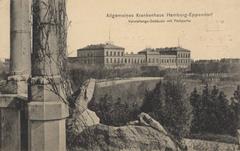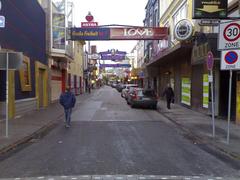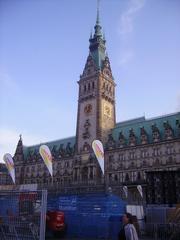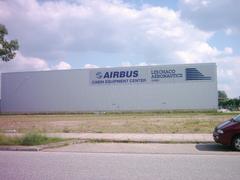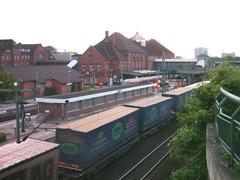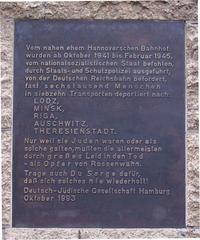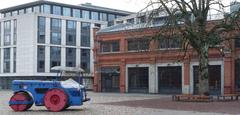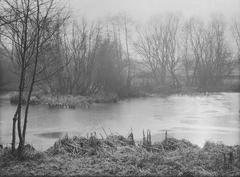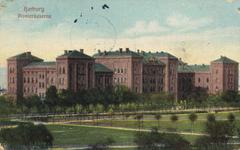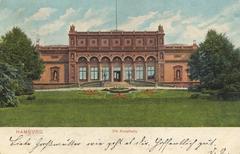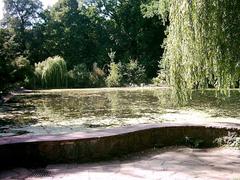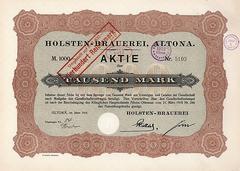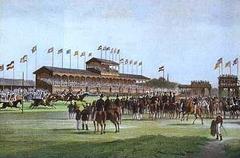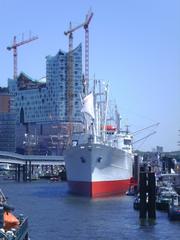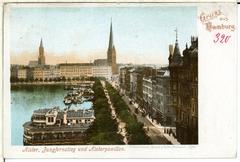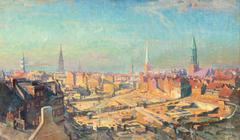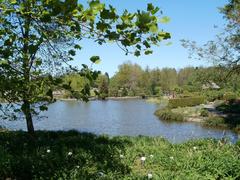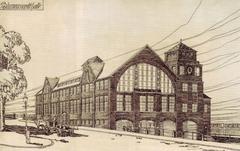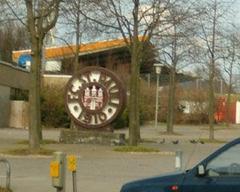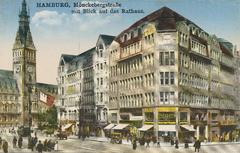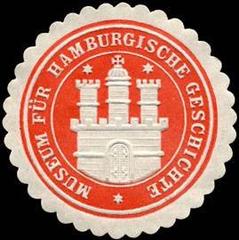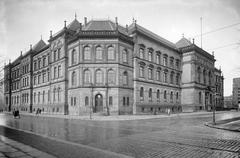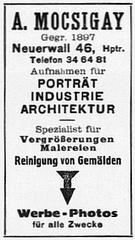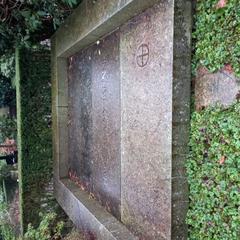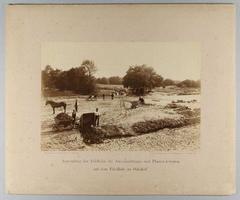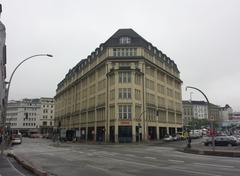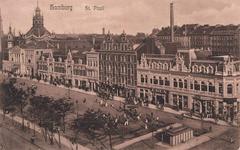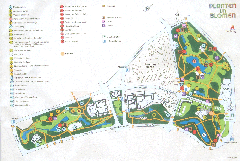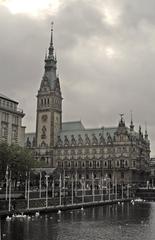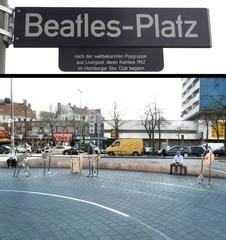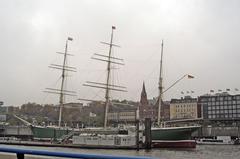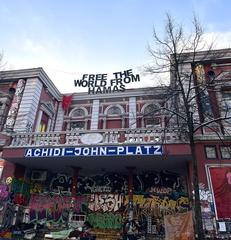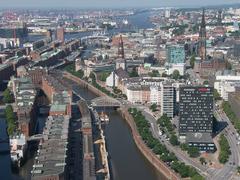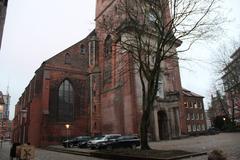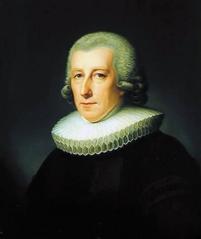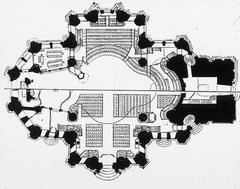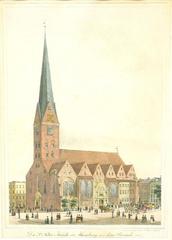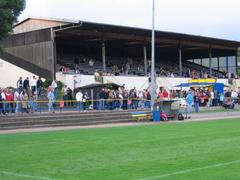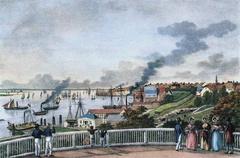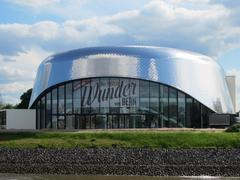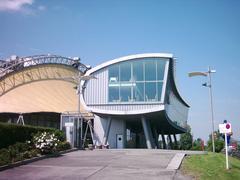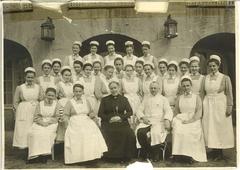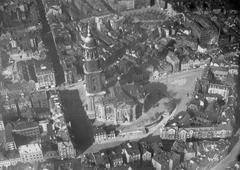
Volksoper Hamburg: Visiting Hours, Tickets, and Comprehensive Guide to Hamburg’s Historical Sites
Date: 04/07/2025
Introduction
Volksoper Hamburg, traditionally known as the “People’s Opera,” stands as a testament to Hamburg’s commitment to making opera and musical theater accessible to all. Although the original Volksoper building no longer exists, its legacy endures in Hamburg’s rich theatrical landscape and the vibrant cultural district where it once stood. This guide offers a deep dive into the history, cultural significance, and practical information for visiting the Volksoper’s legacy sites and Hamburg’s surrounding historical attractions. Whether you are a culture enthusiast or a first-time visitor, this resource will help you make the most of your Hamburg experience. For official updates, consult the Hamburg Travel website.
Table of Contents
- Introduction
- Origins and Historical Development
- Cultural Significance and Community Engagement
- Notable Productions and Milestones
- Venue Evolution and Accessibility
- Practical Visitor Information
- Nearby Historical Sites and Attractions
- Frequently Asked Questions (FAQ)
- Conclusion and Next Steps
- References
Origins and Historical Development
The Volksoper Hamburg emerged in the early 20th century as part of a movement to democratize the arts across German-speaking regions. Conceived as a complement to the prestigious Hamburg State Opera, it was designed to make operatic and theatrical performances available and affordable to the broader public, especially families, students, and working-class audiences. The concept took root in the years following World War I, when Hamburg sought to revitalize its cultural life amid economic and social challenges. Early performances were staged in various multi-purpose halls, reflecting the city’s resilience and resourcefulness.
By the mid-20th century, the Volksoper Hamburg had become a recognized institution, forging its identity through a combination of classic operettas, musical comedies, and innovative new works—often performed in German for accessibility. The post-World War II period was pivotal: as Hamburg rebuilt, the Volksoper provided uplifting cultural experiences that fostered a renewed sense of community and pride.
Cultural Significance and Community Engagement
From its inception, the Volksoper Hamburg championed inclusivity and education. Unlike the more formal Hamburg State Opera, the Volksoper prioritized breaking down barriers between performers and audiences. Outreach initiatives, school matinees, and community workshops became central to its mission, ensuring that opera and theater were approachable, not exclusive.
The Volksoper’s repertoire was intentionally broad, encompassing German translations of major works, operettas, musical comedies, and occasionally contemporary or experimental productions. This strategy made the Volksoper a cultural bridge, attracting a wide demographic and reinforcing Hamburg’s reputation as a cosmopolitan and innovative city.
Notable Productions and Milestones
Significant milestones in the Volksoper Hamburg’s history include:
- Landmark Premieres: German-language adaptations of international musicals and operettas, which brought new trends to Hamburg’s stages.
- Anniversary Seasons: Major anniversaries marked by gala events and retrospectives, highlighting the institution’s enduring legacy.
- Collaborative Festivals: Partnerships with the Hamburg State Opera, local conservatories, and community groups to stage ambitious productions and multi-venue festivals.
Venue Evolution and Accessibility
While the original Volksoper building was heavily damaged during World War II and demolished in the 1950s (de.wikipedia.org), its spirit lives on in the area’s vibrant arts scene. The site at Millerntorplatz in St. Pauli is now an urban space within a district renowned for its nightlife, theaters, and cultural venues. The Volksoper’s legacy continues through nearby institutions and the city’s commitment to accessible, community-oriented performing arts (Hamburg Travel).
Practical Visitor Information
Visiting Hours
As the original Volksoper theater no longer exists, there are no specific visiting hours or ticketing for the site itself. However, nearby venues—such as the Hamburg State Opera and Operettenhaus—operate regular box office hours and performance times:
- Hamburg State Opera Box Office: Open daily; performances typically Tuesday to Sunday, evening shows start at 7:30 PM, with weekend matinees.
- Operettenhaus: Box office and show times vary by production.
For current schedules, consult each venue’s website.
Ticketing and Pricing
- Hamburg State Opera & Nearby Theaters: Tickets range from €10 to €40, with discounts for students, seniors, and families. Advance booking is recommended, especially during peak seasons (hamburgstateopera.de).
- Authorized Sales: Online, at theater box offices, or through official vendors. Special rates may be available for groups and Hamburg Card holders (theworldwasherefirst.com).
Accessibility Features
Most theaters and public venues in Hamburg are wheelchair accessible, with dedicated seating and assistance available upon request. For visitors with disabilities, it is best to contact venues in advance to arrange accommodations (hamburg.de).
Guided Tours and Special Events
- Guided Tours: Many theaters—including the Hamburg State Opera—offer guided backstage tours (subject to availability).
- Special Events: Look for open rehearsals, family matinees, and educational workshops.
- City Walking Tours: Guided tours of the St. Pauli and Reeperbahn districts provide historical context about the former Volksoper site and Hamburg’s theater scene (travelsetu.com).
Nearby Historical Sites and Attractions
- Hamburg Kunsthalle: One of Germany’s leading art museums, featuring classical and contemporary works.
- Speicherstadt: The world’s largest warehouse district, a UNESCO World Heritage Site with unique red-brick architecture.
- Elbphilharmonie: A modern concert hall with panoramic city views and a free public plaza (elbphilharmonie.de).
- Reeperbahn: The entertainment heart of St. Pauli, offering theaters, music venues, and nightlife.
- Landungsbrücken: Historic harbor piers ideal for scenic walks and boat tours.
Frequently Asked Questions (FAQ)
Q: Can I visit the original Volksoper Hamburg building?
A: No, the original theater was demolished in the 1950s. The site at Millerntorplatz is now an urban space with no commemorative plaques.
Q: Where can I experience opera or musical performances in Hamburg?
A: Nearby venues include the Hamburg State Opera, Operettenhaus, and St. Pauli Theater. Tickets are available at box offices and online.
Q: Are guided tours available that cover the Volksoper’s history?
A: While no tours focus exclusively on the Volksoper, many city tours of St. Pauli and the Reeperbahn discuss the area’s theatrical history.
Q: Is the area accessible for wheelchair users?
A: Yes, most venues and public transport in Hamburg are accessible. Always check with individual venues for specific accommodations.
Q: What’s the best way to get to Millerntorplatz and the St. Pauli district?
A: Use Hamburg’s U-Bahn (St. Pauli station, U3 line) or bus lines. The area is pedestrian-friendly and well-connected.
Conclusion and Next Steps
Though the original Volksoper Hamburg no longer stands, its legacy continues to shape Hamburg’s cultural life. Visitors can immerse themselves in the city’s rich operatic and theatrical traditions at nearby venues, explore the historic St. Pauli district, and enjoy a wealth of museums, galleries, and musical experiences. For the latest visitor information, ticketing details, and event updates, consult official resources such as Hamburg Travel, and consider using the Audiala app for audio guides and notifications.
Whether you’re seeking historical insight, live performances, or simply a walk through Hamburg’s storied streets, let the Volksoper’s enduring spirit inspire your journey.
Suggested Visuals
- Historic image of Volksoper Hamburg building before demolition
- Photo of Millerntorplatz today, site of the former Volksoper Hamburg
- Hamburg State Opera house exterior
- Map showing location of former Volksoper Hamburg and nearby cultural venues
References
- Volksoper Hamburg Tickets, Visiting Hours & History: Your Guide to Hamburg’s People’s Opera, 2025, Hamburg Travel (Hamburg Travel)
- Discover Volksoper Hamburg: Visiting Hours, Tickets, History & Cultural Highlights, 2025, Kunstplaza & Hamburg Travel (Hamburg Travel), (Kunstplaza)
- Visiting the Former Volksoper Hamburg Site: History, Nearby Attractions & Visitor Tips, 2025, Wikipedia & ExploreCity (de.wikipedia.org), (ExploreCity)
- Volksoper Hamburg Visiting Hours and Practical Visitor Guide, 2025, Timeout Hamburg & Hamburg and Beyond (Timeout), (Hamburg and Beyond)




